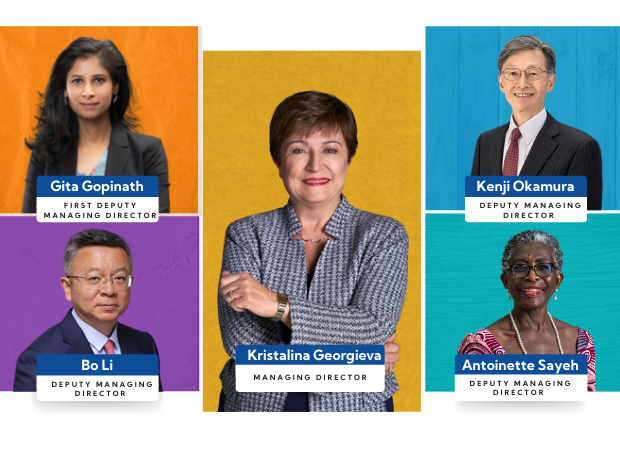
Unlike the United Nations General Assembly, where each country has one vote, voting power and decision-making at the IMF reflect its member countries’ relative economic position. The IMF works to ensure that its governance structure keeps pace with changes in the world economy, including the larger role that emerging market and developing economies now have.
The Board of Governors is the IMF’s highest decision-making body. It consists of one governor and one alternate governor for each member country. The governor is appointed by the member country and is usually the minister of finance or the head of the central bank.

While the Board of Governors has delegated most of its powers to the IMF’s Executive Board, it retains the right to, among other things, approve quota increases, allocate or cancel special drawing right (SDR), the admittance of new members, compulsory withdrawal of members, and amendments to the Articles of Agreement and By-Laws.

The Board of Governors elects the Executive Directors. It is also the ultimate arbiter on interpreting the Articles of Agreement. Unless otherwise specified in the Articles of Agreement, decisions by the Board of Governors are made by a majority of votes cast in person or electronically.

The Board of Governors of the IMF and the World Bank Group normally meet once a year in October to discuss the work of their respective institutions. By custom, the IMF–World Bank Annual Meetings are held in Washington D.C. for two consecutive years and in an alternate member country in the third year.
Two ministerial committees advise the Board of Governors. The International Monetary and Financial Committee (IMFC) and the Development Committee.
The IMFC has 25 members drawn from the Board of Governors. It meets twice a year, during the IMF–World Bank Spring and Annual Meetings, to discuss the management of the international monetary and financial system and any proposed amendments to the Articles of Agreement or any other matters of common concern affecting the global economy. The IMFC issues a summary of its views following each meeting, providing guidance for the IMF’s work. The IMFC operates by consensus and does not conduct formal votes.
The Development Committee advises the Boards of Governors of the IMF and the World Bank on economic issues in developing countries. The committee has 25 members, usually ministers of finance or development, and provides a forum for building consensus on critical development issues.
The IMF’s 25-member Executive Board conducts the day-to-day business of the IMF. It discusses all aspects of the Fund’s work, from the staff's annual reviews of member countries' economies to policy issues relevant to the global economy,
The Board normally makes decisions based on consensus, but sometimes takes formal votes. The votes of each member equal the sum of its basic votes (equally distributed among all members) and quota-based votes, so that a member’s quota determines its voting power. Following most formal meetings, the Board issues a “Summing Up” document of its views. Informal meetings may also be held to discuss complex policy issues at a preliminary stage.

The IMF’s Managing Director chairs the IMF’s Executive Board and heads the IMF staff. The Managing Director is appointed by the Executive Board for a renewable five-year term. When selecting a Managing Director, the IMF’s Governors and Executive Directors may nominate individuals from any IMF member country. Although the Executive Board may select a Managing Director by a majority of votes cast, in recent years, it has made appointments by consensus. A First Deputy Managing Director and three Deputy Managing Directors assist the Managing Director.
IMF SENIOR MANAGEMENTThe Fund’s governance structure must keep pace with the rapidly evolving world economy to ensure it remains an effective and representative institution of all its 191 member countries.
To secure this objective, the IMF Board of Governors’ 14th General Review of Quotas included far-reaching reforms that took effect in 2016 and included:
An unprecedented increase in quotas and a shift in shares. Quotas doubled from the previous level set in 2008 and a major realignment shifted quotas and voting shares to developing countries.
Protecting the voting power of the poorest member countries. The protections apply to countries eligible for the IMF’s low-income Poverty Reduction and Growth Trust and whose per-capita income fell below the International Development Association’s threshold.
A new, more representative Executive Board. An amendment to the Articles of Agreement established an all-elected Executive Board, facilitating a move to a more representative body.
In 2020, the Board of Governors adopted a resolution completing the 15th Review without an increase in quotas and calling for the 16th Review to be completed by December 15, 2023. As part of the 16th Review, the Executive Board will revisit the adequacy of quotas and IMF governance.
This page was last updated in September 2022